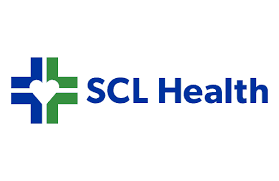
Healthcare systems around the world are built not just on science and technology, but also on compassion, service, and a dedication to improving lives. In the United States, one health network that embodied these values is SCL Health, a faith-based, nonprofit healthcare organization with a mission to serve communities with excellence, compassion, and respect for human dignity.
From its origins as a Catholic health ministry to its merger with Intermountain Healthcare, SCL Health played a vital role in delivering high-quality care across Colorado, Montana, and Kansas. This article takes a closer look at the history, mission, services, and impact of SCL Health, as well as its ongoing legacy in modern healthcare.
The Origins of SCL Health
SCL Health traces its roots back to the 1800s, when the Sisters of Charity of Leavenworth, a Roman Catholic religious community, arrived in Kansas. The sisters began their mission by providing education and healthcare to underserved populations. Guided by principles of faith and service, they gradually expanded their efforts, opening hospitals and care facilities to serve the poor and vulnerable.
In 1864, the Sisters of Charity founded their first hospital in Leavenworth, Kansas. Over the decades, they built a strong reputation for compassionate, community-oriented healthcare. By the 20th century, their ministry had grown to multiple states, laying the foundation for what would eventually become SCL Health.
The organization formally took the name SCL Health in 2012, a reflection of its heritage with the Sisters of Charity of Leavenworth. Despite changes in scale and structure, the mission of faith-based service remained central.
The Mission and Values of SCL Health
Unlike many healthcare providers that operate as large corporate entities, SCL Health embraced its role as a nonprofit, faith-based system. This meant that revenue was reinvested into improving care, expanding services, and supporting community programs rather than going to shareholders.
The organization emphasized the following values:
-
Compassion: Providing care with respect, empathy, and kindness.
-
Excellence: Delivering high-quality medical outcomes through innovation and professionalism.
-
Stewardship: Using resources responsibly to serve current and future generations.
-
Justice: Advocating for equitable access to healthcare for all.
This mission-driven approach distinguished SCL Health from many peers, creating a culture of healing and service that resonated with both patients and staff.
Facilities and Services
At its peak, SCL Health operated eight hospitals, dozens of clinics, and various specialty centers across Colorado, Montana, and Kansas. Its network included a mix of large urban hospitals, rural critical access facilities, and outpatient clinics, ensuring that both metropolitan and rural communities had access to quality care.
Key Facilities Included:
-
Saint Joseph Hospital (Denver, CO): A flagship teaching hospital known for advanced care in cardiology, oncology, and obstetrics.
-
Good Samaritan Medical Center (Lafayette, CO): Focused on comprehensive medical services with strong programs in orthopedics and women’s health.
-
St. Mary’s Medical Center (Grand Junction, CO): A major referral hospital serving Western Colorado.
-
St. Vincent Healthcare (Billings, MT): Provided specialized care for rural populations in Montana and Wyoming.
-
Lutheran Medical Center (Wheat Ridge, CO): A community hospital offering a wide range of services from emergency care to rehabilitation.
Beyond hospitals, SCL Health ran clinics, long-term care facilities, and hospice services, reflecting a commitment to treating patients across all stages of life.
Areas of Specialty
SCL Health provided a comprehensive range of healthcare services. Some areas of strength included:
-
Cardiology and Heart Care: Advanced diagnostic, interventional, and surgical treatments for heart disease.
-
Cancer Care: Comprehensive oncology services with access to leading treatments and clinical trials.
-
Women’s Health: From maternity services to gynecological care, SCL Health was recognized for supporting women at every stage of life.
-
Orthopedics: Joint replacement, sports medicine, and rehabilitation programs.
-
Pediatrics: Family-centered care for children, including specialized neonatal units.
-
Behavioral Health: Integrated mental health services, addressing growing community needs.
This wide-ranging expertise made SCL Health a trusted provider for patients seeking both routine and highly specialized care.
Community Impact
As a nonprofit system, SCL Health reinvested millions annually into community benefit programs. These initiatives supported underserved populations, provided free or reduced-cost care, and addressed broader health needs such as nutrition, housing, and preventive care.
Examples of community efforts included:
-
Charity Care: Financial assistance programs for uninsured or underinsured patients.
-
Community Health Programs: Screenings, education, and outreach efforts targeting chronic conditions like diabetes and heart disease.
-
Social Services Partnerships: Collaborations with local organizations to address homelessness, food insecurity, and other social determinants of health.
This community-first philosophy reflected the organization’s Catholic mission to serve the poor and vulnerable.
The Merger with Intermountain Healthcare
A major milestone in SCL Health’s history came in April 2022, when it officially merged with Intermountain Healthcare, a Utah-based nonprofit system. The merger created a combined organization with more than 60,000 employees, 33 hospitals, and 385 clinics across seven states.
The merger was driven by a shared mission: to improve health outcomes, increase affordability, and expand access to care in underserved areas. By joining forces, the two systems gained greater scale and resources, positioning them to invest in innovation, digital health, and value-based care models.
While the SCL Health name was absorbed under the Intermountain Healthcare brand, its Catholic hospitals in Colorado and Montana retained their faith-based identity and continued to honor the heritage of the Sisters of Charity.
SCL Health’s Legacy
Though SCL Health no longer exists as a standalone entity, its legacy lives on in the communities it served and the values it instilled in its staff and patients. The integration with Intermountain ensures that the spirit of SCL Health—compassionate, community-focused, faith-driven care—remains embedded within a larger, modern healthcare system.
The legacy of SCL Health can be seen in:
-
The continued operation of its hospitals and clinics under the Intermountain network.
-
The ongoing commitment to charity care and social justice initiatives.
-
The generations of healthcare professionals trained and inspired by its mission.
-
The countless patients and families whose lives were improved by compassionate, high-quality care.
Why SCL Health Matters in Healthcare History
SCL Health is significant not only for the care it provided, but also for the values it represented in the healthcare industry. At a time when many hospitals operate with a corporate mindset, SCL Health demonstrated that it is possible to blend financial responsibility with compassion and equity.
Its story illustrates several broader lessons for modern healthcare:
-
Mission Matters: Healthcare organizations with a clear, values-based mission can inspire trust and loyalty.
-
Community Investment Pays Off: By addressing social determinants of health, providers can improve long-term outcomes.
-
Partnerships Strengthen Systems: The merger with Intermountain shows the power of collaboration in an era of rising costs and complex healthcare needs.
Conclusion
SCL Health was more than just a healthcare system—it was a mission-driven ministry that combined modern medicine with compassion and community service. From its 19th-century origins with the Sisters of Charity to its 21st-century merger with Intermountain Healthcare, SCL Health consistently upheld its promise to serve with excellence and dignity.
Today, its hospitals and clinics continue to thrive as part of Intermountain Healthcare, carrying forward a tradition of faith-based care that prioritizes people over profits. For patients, staff, and communities across Colorado, Montana, and Kansas, the legacy of SCL Health remains a source of hope, healing, and inspiration.

